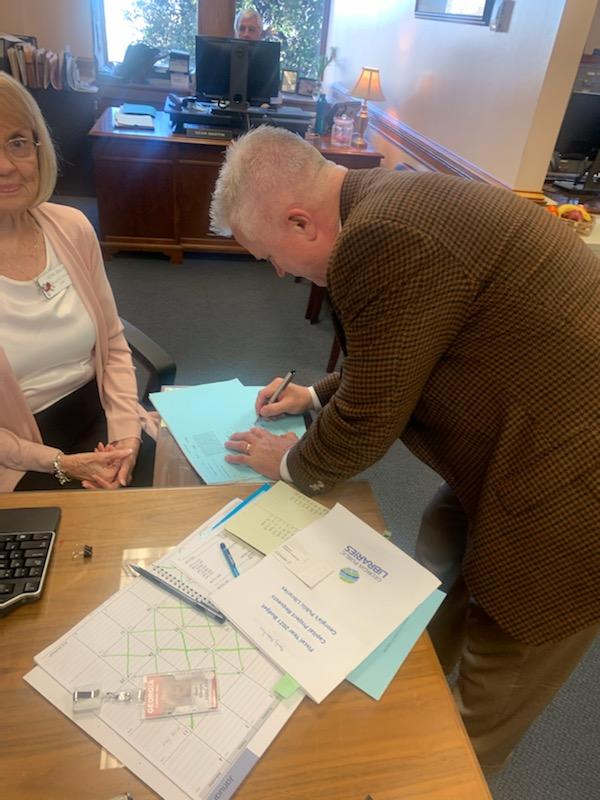
ATLANTA (January 27, 2020) | Today, Senator Randy Robertson (R – Columbus) introduced a bill that calls “title pawns” what they are – loans that should be subject to Georgia’s usury laws. The bill, known as the Motor Vehicle Title Loan Act, would close legal loopholes that currently allow car titles to be “pawned” at interest rates as high as 300 percent.
“The Department of Defense already protects active-duty military servicemembers from these high-cost loans. This bill is about extending similar protections to all Georgians, especially veterans. I look forward to working with my colleagues in the General Assembly to see that this bill becomes law,” said Sen. Robertson.
Consumer advocate and money expert Clark Howard says the legislation will provide significant protections for Georgians vulnerable to these predatory loans. “I hate title pawn loans. These 300% interest loans are all about taking advantage of Georgians when they are desperate for cash. I am so thankful to Senator Robertson for standing up for people who usually have no voice in the legislature,” he said.
“Polls show that a large majority of Georgians statewide believe there should be a cap on the interest rates lenders can charge for car title loans,” said Liz Coyle of Georgia Watch, a consumer advocacy organization that has long advocated for better protections for title loan borrowers. “It’s essential that our leaders listen to the voices of Georgians and take steps now to protect financially insecure consumers from these harmful loans,” she added.
The Motor Vehicle Title Loan Act would ensure that cash loaned in exchange for a car title is treated as a “loan” rather than a “pawn” and would bring title lending into compliance with current Georgia small-dollar lending industry standards. It also would cap interest rates on car title loans at 36% to protect all Georgians, including veterans, in line with Department of Defense protections for active-duty military. If the bill becomes law, it will level the playing field for Georgians by bringing uniformity to small-dollar loans across the state.
###

